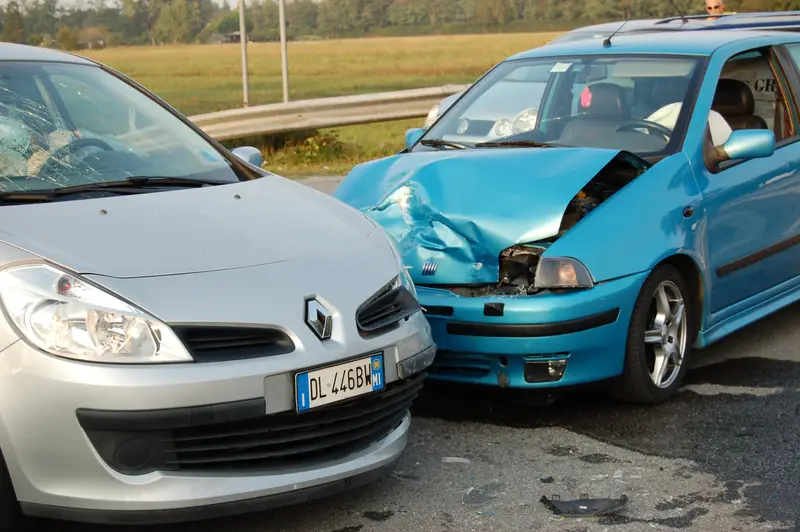Many drivers assume “full coverage” means their insurance will handle any issue that comes up with their car. But in reality, that term doesn’t guarantee protection from every scenario. Insurance companies define coverage using very specific terms, and if you don’t know what’s excluded, you could end up facing surprise expenses and major stress when something goes wrong.
Your personal items stolen from the car
Leaving valuables in your car—even if they’re out of sight—doesn’t mean they’re insured. Many drivers mistakenly believe their auto insurance covers items like laptops, bags, or sports gear stolen from inside the vehicle, but that’s not the case. Most policies only cover the car itself and any parts permanently attached to it.
These personal belongings fall under your homeowners or renters insurance instead. If you frequently leave valuable items in your car, double-check your home insurance policy limits for off-premises coverage. Some policies cap reimbursement at a percentage of your total coverage or have specific limits for certain categories like electronics. A trunk organizer with lock can help keep smaller items secure and out of sight, reducing the chance of theft in the first place.
Damage exceeding your policy limits
Minimum state coverage might meet legal requirements, but it may not be enough when a serious accident happens. If the total cost of property damage or medical bills goes beyond your selected coverage limits, your insurance company won’t pay the difference—you will. This can quickly become a financial burden in multi-car collisions or severe injury cases.
Insurance only pays up to the limits you select when purchasing your policy. Once those limits are exhausted, you’re personally liable for any remaining costs. This can be especially dangerous if you cause an accident resulting in serious injuries, as medical bills can quickly reach hundreds of thousands of dollars. Financial experts generally recommend liability limits of at least $100,000 per person and $300,000 per accident for bodily injury, plus $100,000 for property damage. If you own a home or have significant savings, you might also consider an umbrella policy that provides extra liability protection beyond your auto insurance limits.
Unlisted drivers using your car
It might seem harmless to let a family member or friend drive your car, but depending on your policy, it could lead to denied claims. Auto insurers generally expect regular drivers to be named on your policy, and failure to do so might mean coverage won’t apply if that person causes an accident—even if you gave them permission.
This becomes especially important for household members like teenagers, elderly parents, or roommates who have access to your car. If someone lives with you and uses your vehicle even occasionally, they should probably be listed on your policy. Some insurance companies may deny claims if they discover you’ve been allowing someone to regularly drive your car without adding them to your policy. This policy detail varies by insurer and state, so check your specific policy language or ask your agent about how your insurance handles unlisted drivers.
Custom parts and aftermarket accessories
Many auto insurance policies only cover the factory-installed features of your car, not custom upgrades. If you’ve invested in aftermarket wheels, high-end sound systems, performance modifications, or specialty paint, your standard coverage may fall far short of replacing or repairing those additions after damage or theft.
If you’ve modified your vehicle with custom parts or expensive accessories, ask your insurance company about additional coverage options. Many insurers offer custom parts and equipment coverage as an add-on to your policy for a relatively small premium increase. Be prepared to provide receipts or documentation of the modifications and their value. Without this special coverage, you could lose thousands of dollars if your customized vehicle is damaged or stolen. Even something as simple as an aftermarket car stereo system might exceed the standard coverage limit for custom equipment.
Damage from natural disasters depends on coverage
Many people are surprised to learn that damage from natural disasters isn’t covered by basic liability insurance. Events like hail, floods, falling trees, and earthquakes can leave your car totaled—but without comprehensive coverage, your insurer won’t pay for the repairs. Liability coverage only applies to damage you cause to others.
For protection against natural disasters like hail, floods, falling trees, or earthquakes, you need comprehensive coverage. This optional coverage also protects against theft, vandalism, and collisions with animals. It’s especially important if you live in areas prone to severe weather events or if your car is parked outside without garage protection. While adding comprehensive coverage increases your premium, the peace of mind is often worth it. And if you’re still paying off a car loan, your lender probably requires you to carry both comprehensive and collision coverage anyway.
Intentional damage or illegal activities
Car insurance is meant to cover accidents and unexpected events—not deliberate actions. If you or someone else causes damage on purpose, your claim can be denied. This includes any intentional destruction of your own property or someone else’s, even if it happens in a moment of anger or panic.
Similarly, if damage occurs while you’re engaged in illegal activities—such as street racing, fleeing from police, or driving under the influence—your insurance may deny coverage. Some policies even exclude coverage for damage that occurs while committing a felony. The reasoning is simple: insurance spreads risk among policyholders for unavoidable accidents, not for deliberate choices that dramatically increase risk. These exclusions protect the insurance company from having to pay for avoidable losses and help keep premiums lower for everyone else.
Understanding what your car insurance doesn’t cover is just as important as knowing what it does cover. Most policies have significant gaps that can leave you unexpectedly paying out of pocket if you’re not careful. The best protection is to thoroughly read your policy, ask your agent about any exclusions you don’t understand, and consider additional coverage options for your specific needs and risks. Don’t wait until after an accident to discover these limitations—by then, it’s too late.

